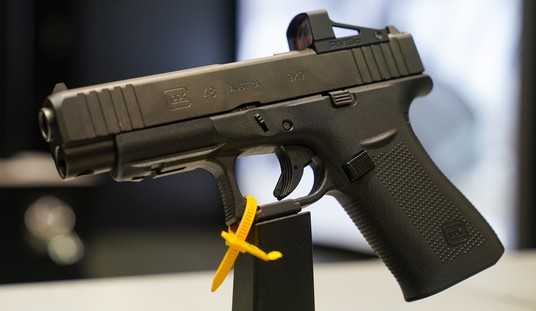The Heller and MacDonald cases held that the right to keep and bear arms is a fundamental right. Under standard rules of Constitutional interpretation, federal courts give special protection to rights which are fundamental.
For the most part, however, the rest of the federal judiciary has gone out of its way to avoid protecting the fundamental right to keep and bear arms.
Michelle Lane is a District of Columbia resident, who sought to buy two handguns to protect herself and her family. As Washington Times reporter Emily Miller points out in her new book, “Emily Gets Her Gun, But Barack Obama Wants Yours,” The district puts a variety of impediments in the way of its citizens’ second amendment rights. Among those impediments is that the district adopted such a restrictive zoning scheme that it is well-nigh impossible to open a gun store there.
In fact, only one federally-licensed dealer in the district, Charles Sykes, handles transfers of handguns to citizens, and the city government had to give him an office in the police headquarters building so he could operate. Even then, the city had to amend its zoning restrictions to allow him to operate because even the police station was outside the small area, where one could theoretically fit a gun dealer.
To get a handgun legally in the District of Columbia, a resident must buy his or her gun from an out-of-state dealer and then pay to ship it to Sykes, who in turn fills out the federal and D.C., paperwork and performs the federal NICS background check.
For his effort, Sikes charges $125 on top of the price of the gun and shipping fees charged by the out-of-state dealer, who would have done the paperwork as part of the gun sale for no additional charge.
This roundabout scheme stems from a federal law which prohibits the interstate transfer of a handgun. However, if Lane wanted a shotgun or rifle to protect her family, she could have walked into any gun store in Maryland or Virginia and after completing the district and federal paperwork, walked out with her purchase without having to pay a substantial premium over the cost of the gun itself. Makes no sense you say? Not to Lane either.
Lane and two other D.C., residents sued to overturn the federal law which prevented them from acquiring handguns directly from gun shops in jurisdictions other than the nation’s capital.
Amazingly, a federal judge in Alexandria, Va., held that Lane was not injured by the law. He so ruled because the law acts on her indirectly in that it governs the behavior of federally-licensed gun dealers, rather than directly governing her conduct. In technical language the court held that she lacked legal standing to contest the law.
Standing is a legal doctrine designed to assure that a real case exists. Federal courts do not issue what are called advisory opinions or answer hypothetical question. Standing requires that a plaintiff suffer an injury in fact as a result of the act complained of and that a decision in the plaintiff’s favor will redress the injury.
How Lane was not injured by a federal law that required her to spend more than $125 she would not otherwise have to spend to exercise a fundamental Constitutional right boggles the mind.
Even more mind boggling is that the Richmond, Va.-based federal appeals court agreed with the Alexandria federal judge. The appellate court held Lane’s legal injury was insubstantial because she was not absolutely stopped from obtaining a handgun, even though the result of the federal law was to drive up her cost of buying a pistol.
Lane’s attorney, Alan Gura, who won both the Heller and MacDonald cases before the Supreme Court, has asked that the high court to hear Lane’s case.
Gura’s petition to the Supreme Court points out that the Richmond appeals court’s decision and its reasoning is contrary to various other federal appeals court decisions regarding prohibitions on interstate shipments of wine to consumers, as well as two other federal appeals court decisions concerning related restrictions on the transfer of firearms.
Moreover, Gura points out that the Supreme Court rejected the standing doctrine as a bar to consumer complaints against a Virginia law that prohibited licensed pharmacists from advertising prescription drug prices, another “indirect” injury case.
Lane’s case is not an outlier. By and large, the lower federal courts have bent over backwards to avoid invalidating state and federal gun restrictions. The standing doctrine is a popular ruse. But, the courts have gone even further by ignoring the fundamental nature of the Second Amendment itself.
Indeed, Gura explains in another case now pending at the Supreme Court that a former lawyer for the anti-gun crowd has written a law journal article pointing out that lower federal judges have, without admitting it, been applying the balancing test advocated in the Heller and MacDonald dissents of Justice Stephen G. Breyer, rather than the reasoning of the majority opinions of Justices Scalia and Alito in those cases.
Under Breyer’s test, gun rights will fail every time when balanced against the government’s asserted interest in fighting crime and saving lives, even though the government is never required by those judges to explain exactly how those gun restrictions actually save any lives.
The Supreme Court will likely decide whether to hear Lane’s case in October. The justices need to hear this or another gun rights case to make it clear to the lower courts that they meant what they said when they held that the right to keep and bear arms is a fundamental right.






Join the conversation as a VIP Member